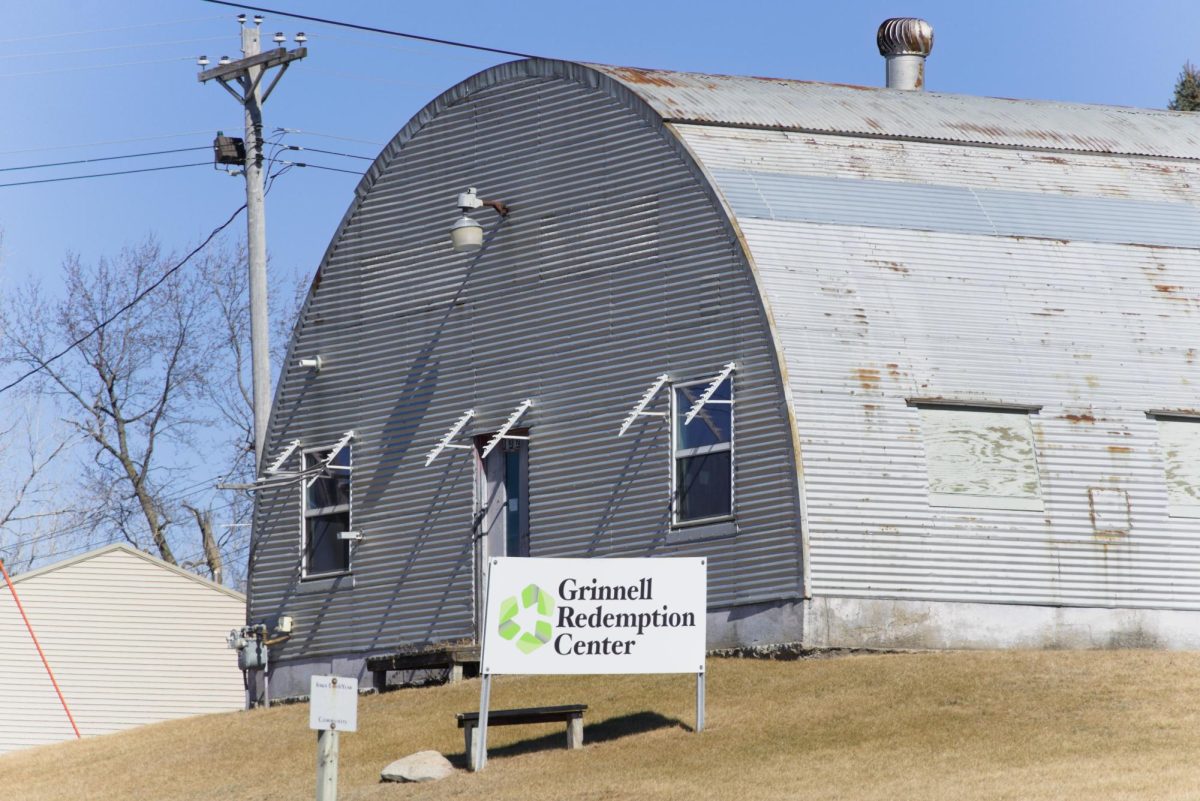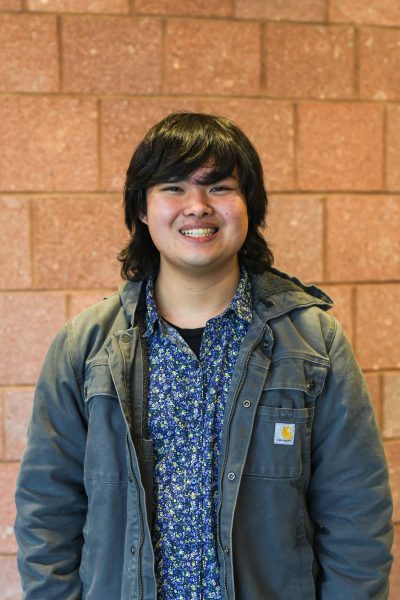Many Grinnell students seek on-campus employment that offers more than just a paycheck. Positions that combine meaningful work with professional development provide valuable experience that extends beyond graduation. Two examples are the User-Access Expert Leaders in the Office of Disability Resources and the Vivero Digital Fellows in Burling Library’s Digital Studio.
The User-Access Expert program, which began in 2017 through an innovation fund project via the Center for Teaching, Learning and Assessment (CTLA), trains student workers to evaluate campus spaces for accessibility beyond basic building codes and Americans with Disabilities Act (ADA) requirements. The program was founded by a collaborative team including Autumn Wilke, now associate chief diversity officer for disability resources, along with former Professor Emerita of Political Science and Latin American Studies Eliza Willis and Micki Behounek, manager of access services for Grinnell College libraries. The initial group of students traveled to Boston to train with the Institute for Human Centered Design, establishing a professional foundation for the program.
The team prioritizes hiring students who bring either primary experience as individuals with disabilities or secondary knowledge through close relationships with disabled people.
Bethany Haas `27, a current User-Access Expert, brings multiple perspectives to the role. “I have mobility disability, sensory things, neurodivergence,” Haas said. “I have primary experience with navigating spaces while dealing with sensory issues.”
Priya Boyce `28, another User-Access Expert, said, “When I’m doing the process, I kind of just think about how someone with a disability would have to use that facility.” Boyce reflected on her audit experiences, recalling how she observed issues such as the absence of Braille on elevator buttons and the inaccessibility of certain elevator buttons for shorter individuals.
Students in this position conduct thorough audits of campus spaces using specialized tools including tape measures, door pressure gauges, levels for measuring angles, especially on ramps, light meters for measuring visibility and decibel meters for sound levels in spaces like dining halls.
The program teaches students to ask effective, non-leading questions when gathering feedback from other users, such as, “Tell me about your experience with the lighting,” rather than “Does that light bother you?” This approach helps them identify accessibility issues even when they don’t personally experience them, considering multiple disability perspectives. Haas said the work has sharpened her awareness of accessibility. “I find myself walking into elevators and being like, ‘It’s not accessible,’ even when I go back to my home state,” Haas said.
Boyce, who has experienced the campus’s accessibility features through her own lens, shares that working alongside others has expanded her perspective. She recalls auditing with Haas, who uses a cane, and how Haas’ insights revealed accessibility issues Boyce had not considered.
“There were things that she understood that I didn’t understand … it was really eye-opening about how much people face challenges, even though we do have a campus that’s considered, you know, disabled-friendly,” Boyce said.
The program has influenced improvements across campus. A recent audit of the John Crystal Center (JCC) revealed some areas for improvement despite the building scoring relatively well overall.
“The new measure gives us even more detailed info that places where we may want to look at improving things are with parking, with the signage within the building, and some of the features around the elevator,” Wilke said.
Many program alumni have gone on to work in accessibility-related fields, applying their specialized knowledge and experience in professional settings, Wilke said.
The Vivero Digital Fellows program emerged from the Grinnell Innovation Fund in 2017. Co-leads Liz Rodrigues, humanities and digital scholarship librarian, and Tierney Steelburg, digital liberal arts specialist, designed the program to be collaborative across multiple campus units.
“We wanted this to be a really holistic program for students to be able to learn about the digital humanities no matter what their major or their prior academic background,” Rodriguez said. “And we also wanted it to really be a very kind of intentional stepping stone towards whatever they might want to do afterwards.”
The program has three main components — training, project work, and peer mentoring, with professional development woven throughout. Initially starting with six fellows, the program has grown significantly and now aims to employ 16 fellows across two semesters. Fellows also have evening drop-in hours in the Digital Studio in Burling Library’s basement, where they assist students with digital humanities projects for courses, student organizations or personal interest.

As Isaiah Schlimm `27, a Vivero Fellow, said, first-semester fellows follow a structured training program covering commonly used digital tools on campus, such as WordPress for website creation and Excel for data manipulation. After this initial training, fellows can choose specialized paths based on their interests and project needs.
Fellows also work on specific digital projects with faculty and staff. Schlimm currently works with the Center for Careers, Life, and Service on their “Map the System” program, designing a website. The program emphasizes documentation skills, teaching fellows to communicate their work clearly for future collaborators.
“That’s the skill of being able to communicate what you did for your future self and for future collaborators who might be on the project,” said Steelburg.
For students like Schlimm, the program offers valuable professional development. “These are really useful skills that I think I’ll definitely be using in the future,” he said. Schlimm is already applying what he has learned in the program to a creative personal project, “a short story that is presented as an encyclopedia page for a small town … navigated as you would Wikipedia.”
For students who want to actively contribute to creating a more inclusive campus while developing valuable skills, professional development student employment roles offer an opportunity to engage in hands-on work that matters. As Boyce said, “I think it’s perfectly fine for students to do this role. That’s how actual experts gain experience. If you don’t have these experiences, then you’re only going to really see it from your perspective.”




















































